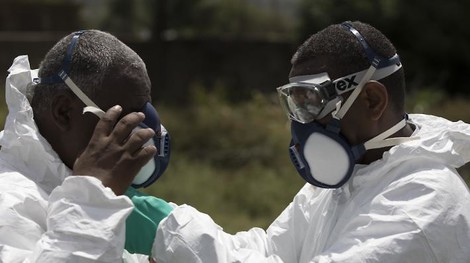Your podcast discovery platform
Curious minds select the most fascinating podcasts from around the world. Discover hand-piqd audio recommendations on your favorite topics.

piqer for: Climate and Environment Boom and bust Global finds
Didem Tali is an award-winning journalist covering international development, gender, displacement and environment issues for English-language media around the world.
Ethiopia To Defuse World's Largest Stockpiles Of 'Toxic Time Bomb' DDTs
DDT, or Dichloro-diphenyl-trichloroethane, has been used as a pesticide since the 1960s. It owes its worldwide popularity to low cost and lack of awareness about its potential hazards.
Many advanced nations in the world moved on from using these toxic chemicals long ago. It was banned in the US in the 1970s. However, in poorer countries around the world, DDT is still a popular pesticide.
Ethiopia is the home to the largest officially reported global stockpile of this toxic chemical. However, the East African nation is in the process of defusing it.
"In just one warehouse in Adama, Ethiopia’s second largest city, about 500 metric tons of DDT are stored in a locked, disorganized warehouse piled high with plastics, cardboard, pallets and general rubble. Mixed throughout the rubbish are the tell-tale yellow plastic DDT pouches, many of them split and leaking. A stubborn metal sliding door, a padlock, some flimsy wire and a few paper “DDT” stickers are all that keep the toxic pile inside the building. Cows graze on the grass outside. The area is mixed residential-industrial," The United Nations Environment describes one of the warehouses.
Moving on from this toxic chemical is a messy and challenging process in a developing nation like Ethiopia, albeit a dire need.
